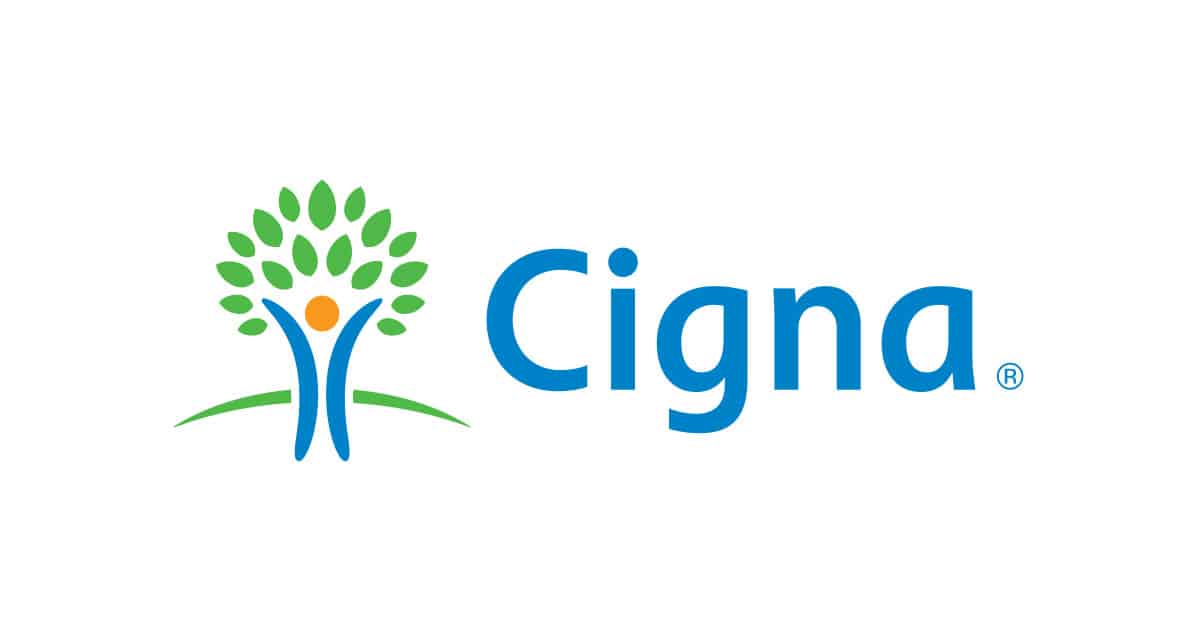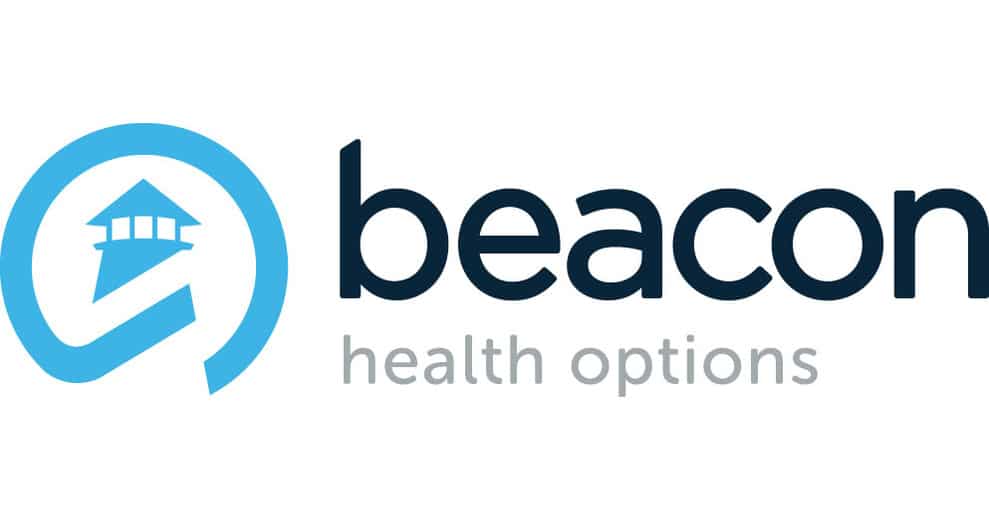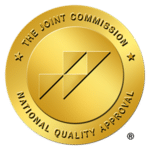Table of Contents
If you or a loved one are struggling with kratom addiction in Atlanta, GA, our specialized rehab center is here to help. Kratom addiction can be a challenging journey, but with the right treatment and support, recovery is possible. At our rehab facility, we offer comprehensive and individualized treatment programs tailored to address the unique needs of each individual seeking help for kratom addiction. Our team of experienced professionals is dedicated to guiding you through the recovery process and providing the tools you need to achieve lasting sobriety.
What is Kratom and Its Use
Kratom is derived from a tropical evergreen tree indigenous to Southeast Asia and is recognized for its leaves, which can be processed into various products. These products have been used traditionally as an alternative to opiates and as a stimulant by Southeast Asian laborers to boost energy. Some also historically consumed kratom as an opium substitute.
The effects of kratom can vary significantly from one person to another. At lower doses, kratom is known to produce stimulating effects, while at higher doses, it may cause sedative, opioid-like effects. Kratom has gained popularity in the United States, although it has not been approved by the Food and Drug Administration (FDA) for any use. People have reported using kratom to self-treat a variety of conditions, including:
- Depression
- Anxiety
- Physical pain
- Symptoms and cravings during opioid withdrawal
Kratom’s active compounds are often ingested by crushing the leaves to smoke, brewing them into a tea, or encapsulating them in gel capsules. These methods are reported to alleviate withdrawal symptoms from opioids and to aid with pain management. The onset of kratom’s effects typically occurs within five to ten minutes after consumption and can last between two to five hours.
In their 2017 “Drugs of Abuse” guide, the Drug Enforcement Administration (DEA) categorized kratom as a “drug of concern” due to its potential for adverse effects, grouping it with substances like salvia and DXM. The FDA also advises against its use and has not recognized it as a treatment option. Although kratom is not listed as a controlled substance at the federal level, its possession and use are prohibited by law in some states. Prolonged use of kratom may lead to symptoms that mirror those of opioid use disorder.
Different Types of Kratom
Kratom, a natural botanical substance, comes in three primary vein colors, each with distinct cultivation practices and effects.
White Kratom: Recognized by its white central vein, this variety is praised for its potential to enhance mood and energy levels. Often utilized as a natural stimulant, white kratom may increase mental clarity and combat fatigue, though it’s advised to avoid evening use to prevent sleep disturbances.
Green Kratom: Featuring a green central vein, this type is known for its balanced effect on alertness and energy. It’s commonly used for pain relief without the sedative effects, making it suitable for daily activities.
Red Kratom: The most sought-after kratom type, characterized by its red vein, is celebrated for its calming and relaxing properties. It’s believed to aid in stress relief and relaxation, with various strains offering a range of benefits tailored to restful experiences.
What is Kratom Addiction?
Kratom has become a popular self-treatment for individuals trying to manage opioid addiction among other conditions, but many may not fully understand the risks associated with its use.
It’s important to remember that just because Kratom isn’t prohibited, it doesn’t mean it’s without potential addictive qualities or harmful side effects.
Some people who use Kratom may experience a range of unpleasant side effects such as feeling overly sedated, encountering nausea and vomiting, experiencing a dry mouth, noticing a decrease in appetite, suffering from itchiness, feeling dizzy, developing constipation, and even enduring confusion.
Using any psychoactive substance, including kratom, alters your brain chemistry. These alterations can cause the brain’s neurotransmitters to behave unusually—either becoming overstimulated, suppressed, or experiencing absorption issues. Kratom is thought to act on opioid receptors in the central nervous system, which is why it has noticeable effects.
Regularly consuming a substance that modifies your brain’s chemical balance can disrupt its normal functioning, potentially leading to psychological dependence. When kratom interferes with the natural function of neurotransmitters, the cycle of addiction may be triggered.
Many users report that in trying to overcome one addiction, they end up grappling with another due to kratom. This substitution can lead to a new set of challenges.
Research on Kratom is ongoing, but the general consensus is that any substance that has the power to alter your thoughts, emotions, or perceptions carries the risk of addiction. This is because it likely influences the brain’s reward system and alters neural pathways.
Understanding Kratom’s Addictive Potential
Kratom is widely regarded as having the potential for physical addiction. Its physical dependence can often be more noticeable than its psychological impact.
Individuals who use kratom over a sustained period may find themselves facing withdrawal symptoms akin to those associated with opioids if they stop abruptly. Common withdrawal effects reported by users of kratom include stomach cramps, excessive sweating, diarrhea, restlessness, intense cravings, irritability, and anxiety.
Treatment options available to those available for opioid addiction are also accessible for kratom dependence. It is crucial to address a kratom addiction with professional help rather than substituting it for another substance addiction. If you suspect you might have a psychological or physical dependency on kratom, even if you haven’t battled opioid addiction, West Georgia Wellness Center offers kratom addiction treatment in Atlanta, GA.

Signs and Symptoms of Kratom Addiction
If someone is struggling with an addiction to kratom, certain symptoms may become evident. It’s important to be aware of these warning signs:
- A noticeable boost in energy levels
- Changes in sleep patterns, either oversleeping or suffering from insomnia
- A diminished appetite
- An increase in the frequency of urination
- Excessive sweating
- Feelings of nausea, which may lead to vomiting
- Digestive issues that can swing between constipation and diarrhea
- An itchy sensation on the skin
- Experiencing hallucinations
- Onset of psychosis
- The occurrence of seizures
- A growing tolerance to kratom, leading to higher consumption to achieve the same effects
Should these signs present themselves, it often indicates a dependency on kratom. Withdrawal symptoms are likely if kratom use is paused, indicating a physical addiction. In such cases, a detox program may be a necessary first step before transitioning to an outpatient rehabilitation setting to address kratom use.
Is Kratom Dangerous?
Kratom, while sometimes used for its psychoactive properties, carries significant risks that cannot be overlooked. Its potential to lead to a substance use disorder makes it inherently hazardous. Individuals who develop a dependency on kratom need to seek professional assistance promptly to prevent severe consequences.
Aside from the potential for addiction, there are other risks associated with kratom use due to the lack of regulation. Without oversight from any official body, it’s impossible to guarantee the purity or safety of kratom products. Whether purchased from a local vendor or online, kratom may be adulterated with unsafe substances that can result in illness or, in extreme cases, prove fatal.
The consumption methods of kratom also introduce varying levels of risk. When smoked, mixed into beverages, encapsulated, or used in other forms, each method carries the potential to introduce harmful, undisclosed additives into the body, which may include illicit substances. This uncertainty surrounding the composition of kratom products adds a layer of danger for consumers who may unwittingly expose themselves to harmful chemicals or drugs.
The Effects of Kratom Addiction
Kratom, while accessible in health stores and used for its purported benefits like mood improvement, energy enhancement, pain management, and aid in opioid withdrawal, has potential negative consequences. When used long-term, kratom may lead to dependency, overdoses, and in some cases, fatal outcomes.
Substance use disorders are widespread in the United States, impacting millions and often co-occurring with mental health challenges, which can intensify the symptoms of both conditions. It’s important to understand the effects of habitual kratom use:
Short-Term Effects of Kratom:
- The impact of kratom can vary with the dosage: lower doses tend to produce stimulant effects such as increased alertness and sociability, while higher doses are associated with sedative effects like pain relief and drowsiness.
- Users may experience a quick uplift in mood and sociability shortly after consumption.
- Some may turn to kratom for its analgesic or energizing properties.
- Habitual use can result in a tolerance build-up, necessitating higher doses for the same effect, which could lead to increased negative side effects.
Long-Term Effects of Kratom:
- Gastrointestinal issues like nausea and constipation are common and may worsen existing digestive problems.
- Loss of appetite and significant weight loss might occur, leading to anorexia.
- Other potential effects include sleep disturbances, changes in skin color, especially on the cheeks, abnormal heart rhythms, liver toxicity, seizures, or even coma.
- Kratom’s interaction with other medications can disrupt brain function, leading to difficulty communicating, confusion, and severe headaches.
- Kratom overdoses, particularly when mixed with powerful substances such as fentanyl, pose grave risks. Overdose indicators include hallucinations, disorientation, accelerated heart rate, breathing difficulties, seizures, and coma. In such instances, it’s crucial to seek immediate medical intervention.
Understanding Kratom Withdrawal Symptoms
When someone regularly uses kratom, they might become physically dependent on it, which means if they stop taking it suddenly, their body could react with withdrawal symptoms. These are some of the common signs that someone might be going through kratom withdrawal:
- A strong desire to use kratom again
- Emotional ups and downs or quick to anger
- An increase in anxious feelings
- Aching muscles
- An unusual amount of sweating
- Nausea or an upset stomach
- Agitated behaviors
- Muscle twitches that they can’t control
- Feeling fidgety or unable to stay still
- Trouble getting to sleep or staying asleep
- Sudden outbursts of emotion
The severity and length of these symptoms can depend on how much and how long the person has been using kratom. Typically, someone who has used a lot for a long time will have more intense and long-lasting symptoms than someone who used a little and for a short time. It’s also important to remember that everyone is different, so withdrawal can look different from one person to the
next.

Kratom Treatment in Atlanta
In Atlanta, there are supportive pathways to overcoming kratom addiction, such as the services provided at our West Georgia Wellness Center.
Recognizing a kratom addiction is the first step toward recovery. Treatment options tailored for kratom addiction are accessible and can be incredibly beneficial.
The approach to treating kratom addiction often mirrors that of opioids, due to the similar ways they affect the body and brain. Opting for kratom addiction treatment can be transformative, allowing you to cease using the substance and also to confront the broader aspects of your addictive behaviors.
For instance, it’s not uncommon for individuals to turn to kratom after battling other opioid dependencies. This specific issue can be addressed comprehensively during kratom addiction treatment.
Furthermore, it’s quite common for those grappling with addiction to also face untreated mental health conditions, sometimes leading to self-medication with substances like kratom. Addressing this, programs like the one at West Georgia Wellness Center offer dual-diagnosis treatments. This approach manages both the addiction and any co-existing mental health concerns simultaneously, offering a more integrated recovery process.
If you’re seeking comprehensive kratom rehab in Atlanta, GA, it’s crucial to select one that employs a whole-person strategy. Addiction is a multifaceted challenge, influenced by mental health, environmental and social factors, family relationships, and more. A holistic treatment program can help you navigate these complexities for a more sustainable recovery.
Therapies for Kratom Addiction
Our kratom addiction treatment program is a unique fusion of time-honored therapeutic practices and holistic healing strategies, aimed at nurturing the whole individual on their journey to recovery. We tailor a full-spectrum treatment regimen to the specific needs of our clients, with a range of therapies and techniques that include:
- Individual Therapy
- Group Therapy
- Trauma Therapy
- CBT
- DBT
- Red Light Therapy
- Neurofeedback Therapy
- Biosound Therapy
- Family Therapy
- Holistic Therapy
- Medication-Assisted Treatment
- Genetic Testing
- Psychiatry
- Experiential Therapy
This comprehensive approach is designed to address every element of our clients’ well-being, setting a solid foundation for lasting recovery from kratom addiction.

Benefits of Seeking Treatment For Kratom Addiction in Atlanta
Battling kratom addiction in Atlanta, GA, can be a daunting experience, one that may leave you feeling alone. But at West Georgia Wellness Center, you’ll find a welcoming environment with experts and fellow individuals on the same journey, all ready to support you towards recovery.
Embarking on a treatment program for kratom addiction in Atlanta means accessing a suite of comprehensive care designed to heal both your body and mind. Plus, you’ll gain the skills needed to keep you on the path to a healthier life.
Here are three key advantages of seeking treatment with us:
A Structured and Accountable Path: Our treatment programs, whether inpatient or outpatient, are meticulously structured. In the residential program, you’ll be in a supportive environment away from everyday triggers, with round-the-clock care. Outpatient services provide regular check-ins for continued support. We focus on establishing a daily routine customized to your recovery needs, providing stability in a time of upheaval. Through therapy, healthy lifestyle promotion, and peer support, we lay down the foundation for your life after treatment.
Comprehensive Well-being Focus: Our approach goes beyond treating addiction; it’s about enhancing your overall health. Recognizing that substance abuse can leave you nutritionally depleted, affect your energy levels, and disrupt your sleep, we provide nutritious meals and encourage physical activities to improve your mood and overall health. By embracing this holistic outlook, we help reduce cravings and instill lasting healthy habits.
A Supportive Community: Recovery is a challenge, but it doesn’t have to be a lonely one. Our treatment centers are known for the strong sense of community they build. You’ll find camaraderie with others who understand what you’re going through, bolstered by a medical team dedicated to your recovery. These bonds of mutual understanding and shared experience can be a powerful force, reinforcing the belief that you can triumph over addiction together.
Kratom addiction treatment in Atlanta gives you a structured, enriching, and supportive roadmap to a life free from dependence.
What to Expect at Our Kratom Rehab in Atlanta
Tackling kratom addiction might seem overwhelming, but at our rehab center, we’ve crafted a path to make the process more approachable. While there isn’t a one-size-fits-all program tailored exclusively for kratom addiction, the broad strategies for substance use disorders apply effectively here as well.
The first step is often detoxification, where those experiencing kratom withdrawal can find a supportive environment to manage their symptoms. We work with detox programs designed to provide both medical and psychological assistance, easing the challenges that come with withdrawal.
Following detox, you’ll transition into our residential treatment program. This means you’ll stay at our facility for a certain period to focus on recovery without outside distractions. Here, you’ll find a safe space to heal and the guidance needed to forge a new, healthier path forward.
When you arrive at our kratom rehab center in Atlanta, you can expect to be welcomed by our compassionate and caring staff. We begin the treatment process with a thorough assessment to better understand your unique needs and challenges related to kratom addiction. Based on this assessment, we create a personalized treatment plan that may include medical detoxification, individual therapy, group counseling, behavioral therapies, and holistic approaches to healing.
Our goal is to provide a supportive and nurturing environment where you can focus on your recovery journey with the guidance of our experienced team.
Does Insurance Cover Kratom Rehab?
We place a high emphasis on ensuring that patients in Atlanta and from across the nation have access to the appropriate treatment for kratom addiction. We understand the concern about the costs of rehab and the financial barriers it might pose. However, many insurance plans do offer coverage for Kratom Rehab, often covering a portion of the costs.
At West Georgia Wellness Center, our intake coordinators are here to assist you with the process of insurance approvals. They’ll explore your coverage options and help clarify the extent of your plan’s contributions to rehab services. And if you find yourself uninsured or if your insurance plan doesn’t fully cover kratom addiction treatment, we can guide you through alternative financing options. Our goal is to make treatment both accessible and affordable, ensuring that financial constraints don’t stand in the way of your recovery journey. Call our kratom rehab at 470-347-1705 or fill out our verify insurance form to start your kratom addiction treatment.
Find Effective Kratom Rehab in Atlanta Now
If you or a loved one is struggling with kratom addiction, finding the right rehab center is essential for successful recovery. At our Atlanta-based rehab facility, we offer compassionate, evidence-based treatment programs designed to address the unique challenges of kratom addiction. Our experienced team is committed to guiding you on your journey to recovery and helping you build a foundation for a healthier, substance-free life.
Take the first step towards healing by reaching out to our kratom rehab center today. Let us support you in overcoming addiction and achieving lasting wellness.
Kratom Rehab Frequently Asked Questions
What is Kratom Addiction Treatment?
Kratom addiction treatment involves a combination of detoxification, counseling, and behavioral therapies to help individuals overcome dependence on Kratom.
How is Kratom Addiction Treated in Rehab?
Kratom addiction treatment typically involves a combination of detoxification to manage withdrawal symptoms, behavioral therapy to address underlying issues and triggers, and support groups to provide peer support and coping strategies.
How is Detox Managed in Kratom Addiction Treatment?
Detox from Kratom is typically managed under medical supervision to alleviate withdrawal symptoms, which can include cravings, fatigue, irritability, and mood swings.
Can Kratom addiction cause long-term health issues?
Long-term Kratom use can lead to weight loss, liver damage, and psychological issues such as anxiety and depression. Rehab focuses on addressing these health concerns alongside addiction treatment.
What are Common Withdrawal Symptoms from Kratom?
Withdrawal symptoms include muscle aches, insomnia, irritability, mood swings, and nausea. These symptoms can be effectively managed in a rehab setting through medical supervision and supportive care.
What Therapies are Effective for Kratom Addiction?
Effective therapies include CBT, individual therapy, and group therapy, focusing on behavior change and coping strategies.
Is Kratom Addiction Treatment Different from Other Substance Treatments?
While there are similarities, Kratom addiction treatment may focus more on managing the unique withdrawal symptoms and psychological dependence associated with Kratom.
Is Kratom Addiction Similar to Opioid Addiction?
Kratom interacts with opioid receptors, so its addiction and withdrawal symptoms can be similar to opioids, though typically less severe. Treatment approaches are similar, focusing on both physical and psychological aspects of addiction.
What Support Systems are Important in Kratom Addiction Treatment?
Support systems can include family and friends, support groups, and ongoing counseling to provide emotional support and accountability.
How Long is Kratom Rehab?
The duration of Kratom rehab varies depending on the severity of addiction and individual needs, typically ranging from a few weeks to several months, with ongoing support for maintaining sobriety.














